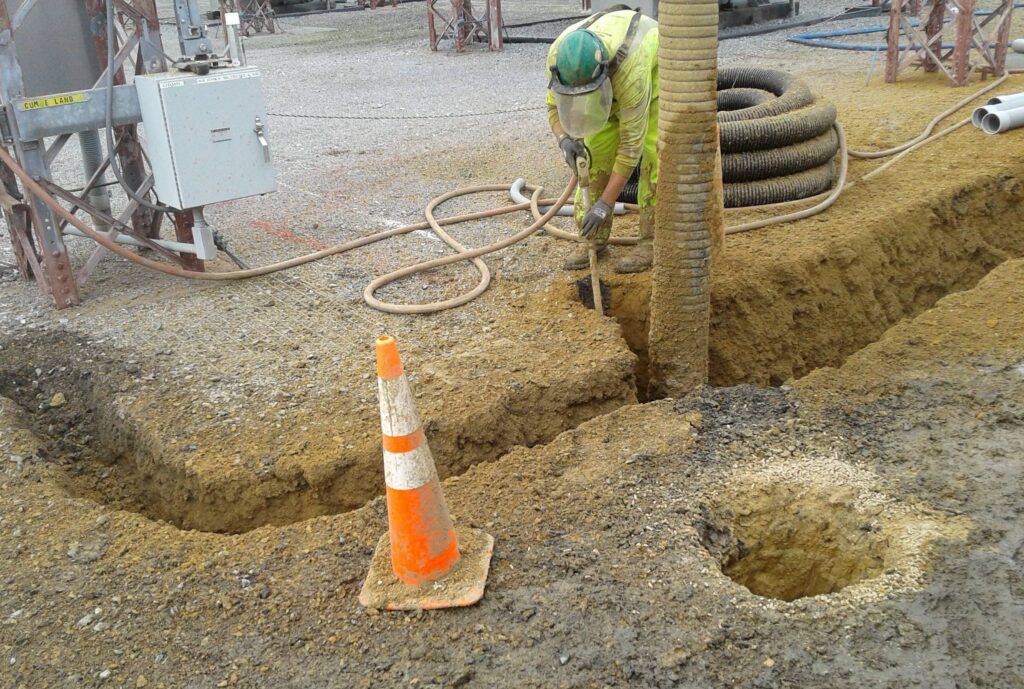Unearthed Perils: 10 Dangers Contractors Face in Excavating Work
Introduction:
Excavating work is a fundamental aspect of construction projects, enabling the creation of strong foundations for buildings and infrastructure. However, beneath the surface lies a myriad of potential dangers that contractors must navigate with precision and caution. In this blog post, we will delve into the ten dangers that contractors often face when undertaking excavation work and explore the necessary precautions to mitigate these risks. For excavating estimates in Knoxville TN, contact us today!
Utility Strikes: One of the most immediate and critical dangers during excavation is the risk of striking underground utilities. Gas lines, water pipes, and electrical cables are often concealed beneath the earth, and accidental contact can lead to catastrophic consequences such as explosions, flooding, and electrocution. Contractors must prioritize accurate utility mapping and marking to prevent inadvertent strikes.

Cave-Ins and Trench Collapses: Excavation often involves digging trenches, and the instability of soil poses a constant threat of cave-ins or trench collapses. Soil conditions, weather, and the depth of the excavation can contribute to these hazards. Contractors must implement proper shoring and trench protective systems to safeguard workers and prevent the collapse of excavation sites.
Heavy Equipment Accidents: The use of heavy machinery, such as excavators and bulldozers, introduces the risk of accidents on the construction site. Mishandling equipment, lack of training, and equipment malfunctions can lead to injuries and fatalities. Contractors must ensure that operators are adequately trained, equipment is well-maintained, and safety protocols are strictly adhered to.
Hazardous Materials Exposure: Excavation sites may unknowingly encounter hazardous materials, such as asbestos, lead, or contaminated soil. Exposure to these substances can have severe health implications for workers and nearby communities. Thorough site assessments and proper handling of potential hazardous materials are essential to protect the well-being of workers and prevent environmental contamination.
Structural Damage to Nearby Buildings: Excavation work in urban areas poses the risk of causing damage to adjacent structures. Vibrations from heavy equipment, ground settling, or unexpected soil shifts can compromise the integrity of neighboring buildings. Contractors must conduct thorough structural assessments, use proper excavation techniques, and implement measures to minimize vibrations and impacts on nearby structures.
Inadequate Slope Stability: The stability of excavation slopes is crucial to prevent landslides or collapses. The type of soil, weather conditions, and the angle of the excavation can affect slope stability. Contractors must assess and monitor slope conditions regularly, implement appropriate stabilization measures, and establish protocols for responding to any signs of instability.
Inadequate Communication and Coordination: Effective communication and coordination are paramount on construction sites, especially during excavation work. Poor communication between different teams, including contractors, utility providers, and site supervisors, can lead to misunderstandings and increase the risk of accidents. Establishing clear communication channels and protocols is essential to ensure a safe and well-coordinated work environment.
Weather-Related Challenges: Weather conditions can significantly impact excavation work, introducing additional dangers such as slippery surfaces, flooding, or soil erosion. Contractors must monitor weather forecasts closely, implement preventive measures during adverse conditions, and establish contingency plans to address weather-related challenges.
Unstable Underground Conditions: Unforeseen underground conditions, such as soft soil or unexpected rock formations, can pose risks to excavation projects. Contractors must conduct thorough geotechnical surveys before starting work and remain vigilant for any signs of unstable ground conditions during excavation. Adaptable excavation plans and the use of appropriate equipment are crucial in addressing unexpected challenges underground.
Regulatory Compliance and Legal Risks: Failure to comply with local regulations and safety standards poses legal risks for contractors engaged in excavation work. Fines, project delays, and legal actions can result from non-compliance. Contractors must stay informed about relevant regulations, obtain necessary permits, and implement comprehensive safety programs to ensure compliance and mitigate legal risks.
Conclusion:
Excavating work is a complex and vital component of construction, but it comes with inherent dangers that demand careful consideration and proactive risk mitigation. Contractors must prioritize safety through thorough planning, continuous training, and adherence to industry standards. By navigating the potential hazards with diligence and caution, contractors can ensure not only the success of their projects but also the well-being of their workforce and the communities they serve.